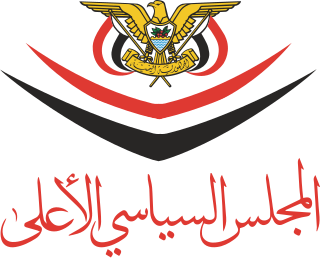 W
WThe Houthi movement, officially called Ansar Allah and colloquially simply Houthis, is an Islamic political and armed movement that emerged from Sa'dah in northern Yemen in the 1990s. The movement was called Houthis because its founder is from the Houthi tribe. They are of the Zaidi school, though the movement also includes Sunnis. Under the leadership of Hussein Badreddin al-Houthi, the group emerged as an opposition to former Yemeni president Ali Abdullah Saleh, whom they charged with massive financial corruption and criticized for being backed by Saudi Arabia and the United States at the expense of the Yemeni people and Yemen's sovereignty. Resisting Saleh's order for his arrest, Hussein was killed in Sa'dah in 2004 along with a number of his guards by the Yemeni army, sparking the Houthi insurgency in Yemen. Since then, except for a short intervening period, the movement has been led by his brother Abdul-Malik al-Houthi.
 W
WAl Masirah is a Yemeni TV channel which was founded and is owned by the Ansarullah movement (Houthis). The TV channel is headquartered in Beirut, Lebanon.
 W
WThe slogan of the Houthi movement, a political and religious movement and rebel group in Yemen, reads "Allah is Greater, Death to America, Death to Israel, Curse on the Jews, Victory to Islam" in Arabic text. It is often portrayed on a white flag, with the written text in red and green.
 W
WThe Houthi takeover in Yemen, also known as the September 21 Revolution, or 2014–15 coup d'état, was a gradual armed takeover of former Yemeni President Ali Abdullah Saleh by the Houthis and their supporters that pushed the Yemeni government from power. It had origins in Houthi-led protests that began the previous month, and escalated when the Houthis stormed the Yemeni capital Sana'a on 21 September 2014, causing the resignation of Prime Minister Mohammed Basindawa, and later the resignation of President Abdrabbuh Mansur Hadi and his ministers on 22 January 2015 after Houthi forces seized the presidential palace, residence, and key military installations, and the formation of a ruling council by Houthi militants on 6 February 2015.
 W
WAbdul-Malik Badreddin al-Houthi is a Yemeni politician who serves as the leader of the Zaidi revolution movement Ansar Allah (Houthis). His brothers Yahia and Abdul-Karim are also leaders of the group, as were his late brothers Hussein, Ibrahim, and Abdulkhalik. Abdul-Malik Houthi is the leading figure in a revolution starting in the Sa'dah province in northern Yemen, which has been continuing from 2004 to the present day. The uprising was called the Houthi Rebellion due to his leadership.
 W
WBadreddin al-Houthi also spelled Badr al-Din Al-Houthi was a Yemeni politician and scholar of Zaidi Islam.
 W
WThe Houthi insurgency in Yemen, also known as the Houthi rebellion, Sa'dah War, or Sa'dah conflict, was a military rebellion pitting Zaidi Shia Houthis against the Yemeni military that began in Northern Yemen and has since escalated into a full-scale civil war. The conflict was sparked in 2004 by the government's attempt to arrest Hussein Badreddin al-Houthi, a Zaidi religious leader of the Houthis and a former parliamentarian on whose head the government had placed a $55,000 bounty. Initially, most of the fighting took place in Sa'dah Governorate in northwestern Yemen, but some of the fighting spread to neighbouring governorates Hajjah, 'Amran, al-Jawf and the Saudi province of Jizan. After the Houthi takeover of the capital city Sana'a in late 2014, the insurgency became a full-blown civil war with a major Saudi-led intervention in Yemen beginning in March 2015.
 W
WThe Supreme Political Council is an unrecognised executive body formed by Houthi Ansarullah and the General People's Congress (GPC) to rule Yemen. Formed on 28 July 2016, the presidential council consists of 10 members and was headed by Saleh Ali al-Sammad as president until his death from a drone air strike on 19 April 2018 with Qassem Labozah as vice-president. Its territory that rules it consists of the former North Yemen, which unified with South Yemen in 1990.
 W
WThe Supreme Revolutionary Committee, sometimes referred to as the Revolutionary Council or the Revolutionary Committee, is an interim body in Yemen formed by the Zaidiyyah Shia group Ansar Allah. In their 6 February 2015 "constitutional declaration" after seizing control of the Yemeni capital and much of former North Yemen, and the failure of Thursday talks between the Houthis and Yemen’s many political parties that were aimed at forming a government to replace Hadi and his cabinet, the group declared the committee would act as Yemen's interim authority. The committee was given the task of forming a new 551-seat parliament, which would then select a five-member presidential council to rule the country for two years.